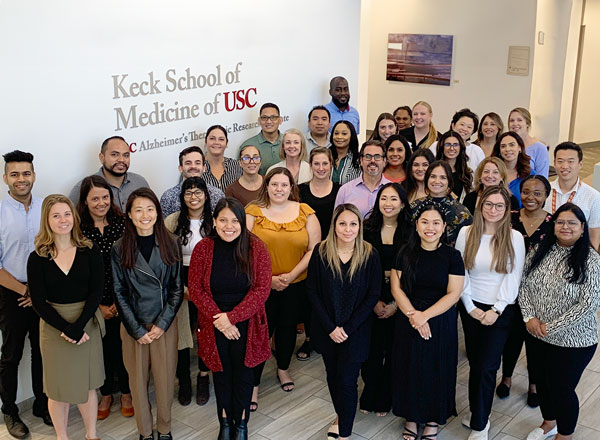Sections
The USC Epstein Family ATRI’s conduct the largest studies and landmark clinical trials which involve many partners, huge study teams, thousands of research participants and millions of data points. The Epstein Family ATRI is also co-leading the Alzheimer’s Clinical Trials Consortium (ACTC) to provide an optimal infrastructure, utilizing centralized resources and shared expertise, to accelerate the development of effective interventions for Alzheimer’s disease and related disorders. ACTC includes additional sections and units dedicated to designing, coordinating and studying clinical trials and their outcomes.

Biostatistics

Informatics
Data Management
The Data Management Unit is responsible for providing data management support including the generation and maintenance of electronic case report forms, development and implementation of quality control procedures, assuring resolution of all data queries, and developing optimal field-level form-level, visit-level, subject-level and study-level quality analysis.
The quality assurance and reporting done by the Data management Unit ensures the quality of the data for analysis and supports the ATRI units in the management of ATRI studies.
Software Development and Engineering
The Software Development and Engineering group operates underneath the Informatics unit at ATRI.
Information Technology
Architect and Manage IT Infrastructure and Services

Medical Safety
Medical Monitoring
- SAE reviews
- AE MedDRA coding
- Eligibility questions
- Medical management questions
- Abnormal lab/ECG/MRI reviews
- Protocol deviation reviews
Clinical Monitoring
- In-person and remote site visits
- Site communication and documentation
- Study timelines and deliverables
- Source Document Verification
- Drug Accountability Review
- Query resolution

Administration

Biomarker Lab & Biorepository
The Biorepository serves as a national library for federally funded AD trials. This primarily involves long term storage and sharing of study samples and data. This newly expanded facility now has the capacity to hold 248 minus 80ºC freezers which can hold 11.57 million samples.

Clinical Operations

Neuropsychology

Recruitment, Engagement and Retention
USC Support Teams

